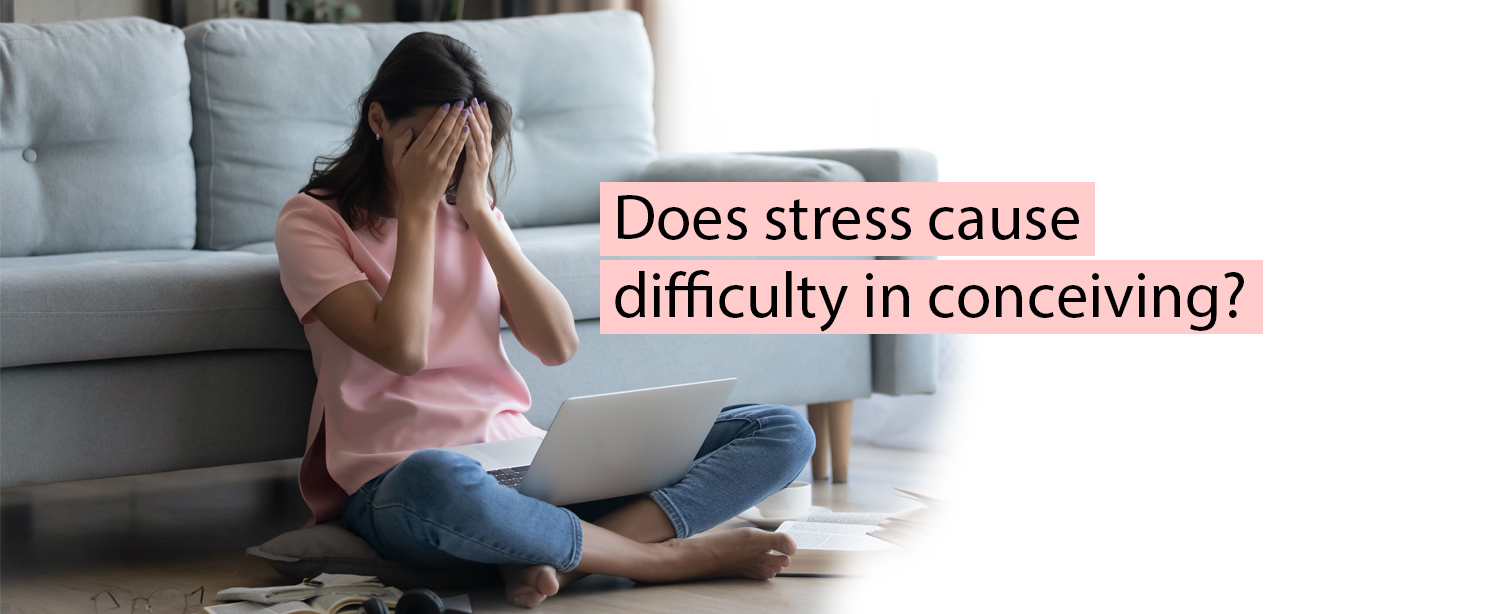Statistics suggest that about 17.5% of the adult population, roughly 1 in 6 worldwide experience infertility. Infertility is a condition where pregnancy is difficult even after one year of unprotected sex. Causes of infertility can include ovulatory disorders, endometriosis, low sperm count, low testosterone and in some cases high stress levels. The risk of infertility is known to increase as you age. While many treatment options are available for people with infertility, timely diagnosis and a comprehensive care plan is beneficial to patients. Here are some insights by our health expert Dr. Hitesha Ramnani Rohira, Consultant – IVF at KDAH Mumbai on “Stress and Fertility.”
Does Stress cause difficulty in conceiving?
Infertility is often a silent struggle. Patients who are struggling to conceive often complain of feelings of depression, frustration, anxiety and isolation. There has long been discussion regarding the connection between stress and infertility. Women with infertility report elevated levels of anxiety and depression (psychogenic infertility), hence it is clear that infertility causes stress. What is less clear, however, is whether or not stress causes infertility so “It’s the chicken and egg question.”
Stress hormones like cortisol and epinephrine surge in difficult circumstances and may have a negative impact on a person’s fertility. Reducing stress may be a great way to increase blood flow to the reproductive organs, and thereby increase the supply of nutrients in those regions. The possibility that psychological factors may have an impact on pregnancy rates is one of the most contentious topics in the field of reproductive medicine. The idea that stress impairs reproduction function is supported by a variety of old wives’ tales, although it has been difficult to prove medically.
It is definitive that infertility leads to significant distress and most recent research has documented the efficacy of psychological interventions in lowering psychological distress as well as being associated with significant increase in pregnancy rates. Here are some highly recommended stress-reduction techniques; used to help fertility patients and complement their medical treatment:
- Acupuncture
- Collaboration with experts in stress reduction
- Journaling
- Listening to music
- Massage therapy
- Meditation
- Mind-body groups
- Mindfulness
- Progressive muscle relaxation
- Psychotherapy and cognitive behavioral therapy
- Self-help books
- Support/educational groups
- Walking/hiking
- Yoga
Fertility care at Kokilaben Dhirubhai Ambani Hospital
The Department for Reproductive Endocrinology and Fertility (CREF) at KDAH Mumbai provides specialized and expert health care for the management of endocrine disorders and infertility. At CREF, we provide complete services to women with endocrine issues, infertile couples, and people who need to preserve their fertility for medical reasons. We are dedicated to assisting couples who are having trouble getting pregnant by offering cutting edge and modern diagnostic tools and treatment. At CREF, we support and provide Integrative Medicine as a special option alongside conventional medical therapies like Medical Acupuncture and Mind-Body Medicine. Our team is staffed by a full-time consultant Reproductive Endocrinologist and Infertility specialist, IVF coordinator, embryologist, nurses trained in caring for patients with endocrine and infertility issues and a healthcare assistant. Our CREF team is located on the 7th floor of the hospital and has a dedicated space for out-patient care and day-care patients. Please visit our website for more details: https://www.kokilabenhospital.com/departments/clinicaldepartments/reproductiveendocrinologyfertility.html


